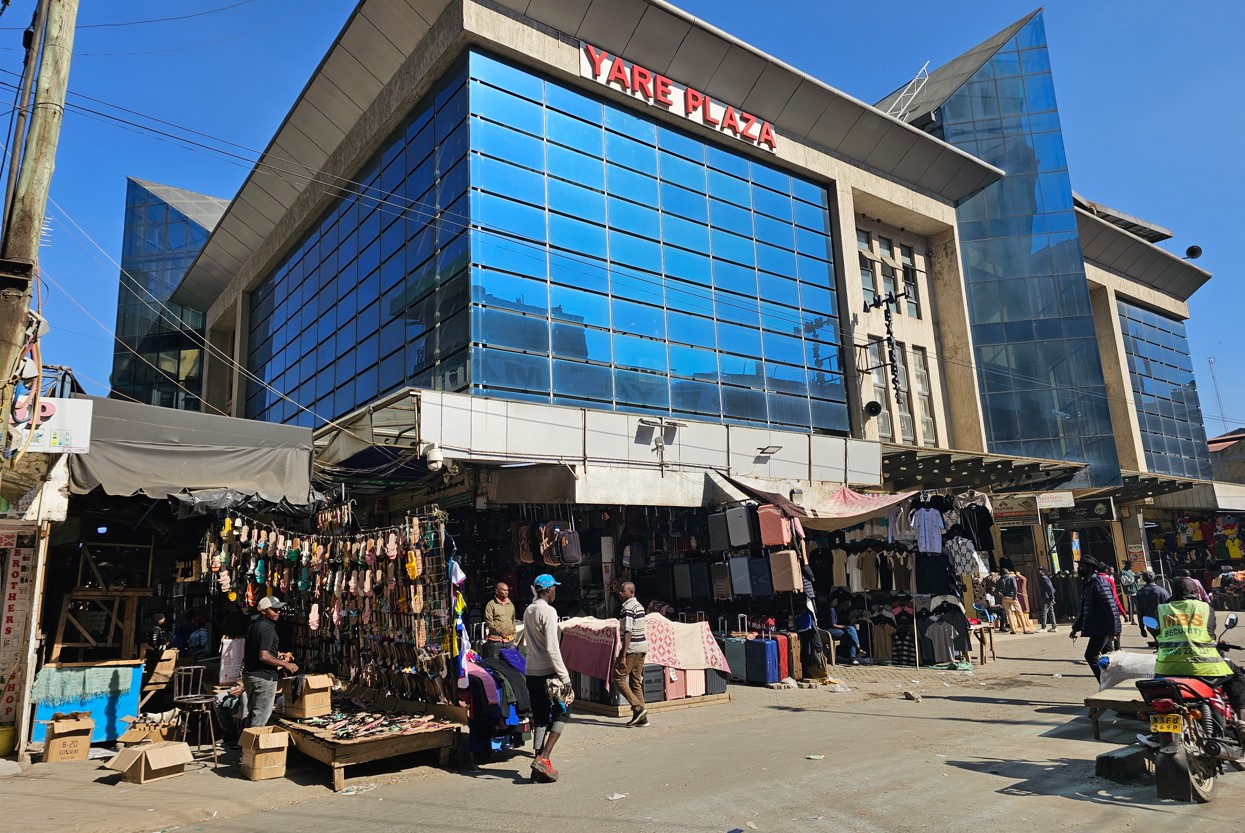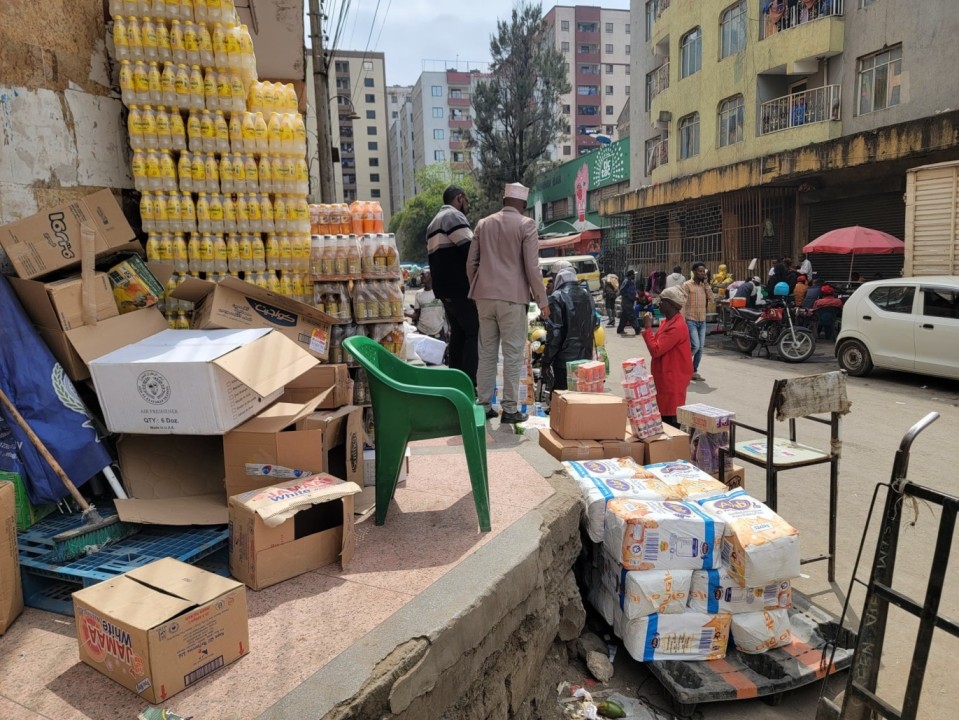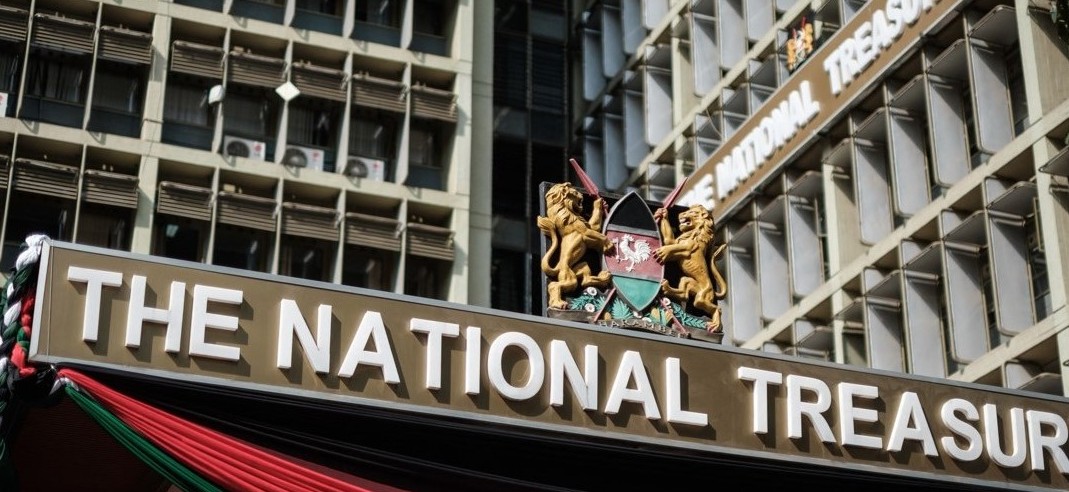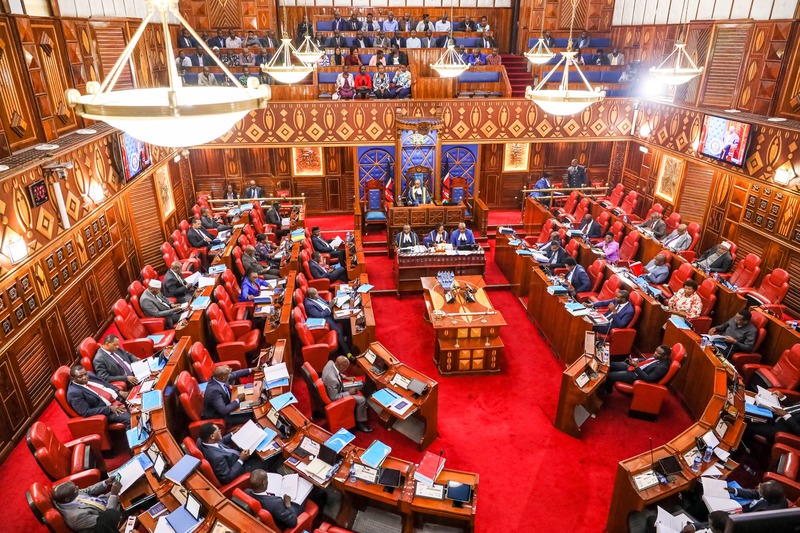Eastleigh's rising rental prices reflect economic boom amid increased cost of living

Eastleigh has continued to create employment and opportunities for many Kenyans, positioning itself as a significant economic hub in the region.
The cost of living in Eastleigh Business District, located in Nairobi's Kamukunji constituency, is notably higher than in other middle-class residential areas of the city.
An analysis by The Eastleigh Voice found that housing costs in California ward, for example, are comparable to those in some of Nairobi’s upscale suburbs like Karen, Westlands, and Kilimani.
More To Read
- Robots, smart tables and Somali flavours: Eastleigh’s AK’s Restaurant is the future of dining
- Kamukunji marks Mashujaa Day with tributes to Raila amid calls for unity
- Muinami Street upgrade brings hope to Pumwani and California residents and traders
- How blocked drainage systems, open sewers threaten lives, businesses in Eastleigh
- MP Yusuf Hassan donates food, blankets to victims of three Kamukunji fire incidents
- Nairobi Chief Officer Geoffrey Mosiria leads crackdown on illegal dumping, hawkers in Eastleigh
This is despite Eastleigh not being officially classified as a suburb by various rental indexes.
According to real estate firm HassConsult, suburbs in Nairobi typically include places like Westlands, Runda, Karen, Lavington, and Kilimani.
Findings
After evolving from a dusty estate into a busy business centre that attracts people from across the East African region, Eastleigh's booming commercial growth is now impacting the residential sector, leading to steadily rising house rents over the decades.
Currently, rent for a two-bedroom apartment in California Estate averages around Sh58,000 per month, while a three-bedroom unit costs between Sh70,000 and Sh80,000 per month.
Notably, these rates are nearly three times higher than those in other well-known middle-class residential areas like Embakasi, Kasarani, Umoja, and satellite towns such as Thika, Kitengela, Ngong, Ongata Rongai, Kiambu, and Ruaka.
A spot check by the Eastleigh Voice found that the average monthly rent in the aforementioned regions ranges between Sh17,000 and Sh20,000 for a two-bedroom house.
On the other hand, a three-bedroom house in these regions typically has an average maximum rent of Sh35,000.
Comparatively, a person living in a two-bedroom apartment in California, Eastleigh, spends nearly Sh670,000 on rent annually, while someone in Umoja or other satellite towns spends about Sh240,000 a year.
This is almost half a million disparities.
 Traders purchase items at wholesale shops along 14th Street in Eastleigh on September 3, 2024. (Photo: Ahmed Shafat)
Traders purchase items at wholesale shops along 14th Street in Eastleigh on September 3, 2024. (Photo: Ahmed Shafat)Traders purchase items at wholesale shops along 14th Street in Eastleigh on September 3, 2024. (Photo: Ahmed Shafat)
Contributing factors
Several residents interviewed by the Eastleigh Voice, when asked about the affordability of the rates, noted that the rents reflect the significant transformation the area has undergone over the past decades.
"We can't run away from the fact that the district has become one of the most bustling commercial and residential areas in the city," Hassan noted.
He added that rental costs in the region have been steadily rising since his childhood, reaching levels that are unaffordable for many people.
Overall, rental prices have been rising over the years. According to the latest HassConsult Composite Letting Index, which represents rental properties across Kenya, rents have increased by a factor of 4.37 since 2001.
According to the index, the annual average rent for all properties offered for rental purposes has risen from Sh38,516 in December 2000 to Sh168,380 in June 2024.
The average rent for a 4-6 bedroom property is currently Sh238,878, whereas that for a 1-3 bedroom property is Sh93,851.
The Kenya Alliance and Residence Association (KARA) claims that demand in some areas of the city has caused rental spikes over time.
This increase comes as rents in upscale and other major areas return to levels seen before the COVID-19 pandemic.
"There was a significant drop in rents during the COVID period, but now landlords are increasing rents as the economy picks up," KARA chief executive Henry Ochieng says.
He, however, notes that in other cities and major towns, such as Mombasa, Kisumu, and Nakuru, rent fluctuation remains moderate.
Other residents in California expressed surprise, noting that while the booming business has benefitted the community, it has also led to the downside of rising living costs in the area.
Some residents attributed the rising costs to the increased money supply in the district. They referenced the economic concept that when money is abundant and circulating among people, the purchasing power of commodities rises, leading to higher prices for those commodities.
Ideally, this pushes up the general cost of living.
 Shoppers are pictured on First Avenue in Eastleigh, Nairobi. (Photo: Abdirahman Khalif/EV)
Shoppers are pictured on First Avenue in Eastleigh, Nairobi. (Photo: Abdirahman Khalif/EV)
Comparison with sample suburbs
For example, in Kilimani, the monthly rent for a regular two-bedroom house in an apartment ranges between Sh45,000 and Sh60,000.
On the other hand, a three-bedroom ranges between Sh75,000 and Sh100,000.
The range is almost identical to the Westlands area, where a two-bedroom regular house costs between Sh45,000 and Sh70,000 per month, while a three-bedroom costs between Sh80,000 and Sh150,000.
The case bears a striking resemblance to other highlighted suburban regions, vividly illustrating the range of rental prices in the Eastleigh Business District, which surrounds the California estate.
However, a section of residents from the aforementioned upmarket estates recently expressed their concerns about the increased amount of rent imposed on them by landlords.
The estates facing this challenge include Kilimani, Lavington, Karen, and Westlands.
Eastleigh's boom
Over the past 20 years, there has been a positive change in Nairobi's Eastleigh estate.
From its muddy streets, dozens of stores and hotels have sprung up, drawing thousands of shoppers as investors continue to transform the centre.
Currently, there are more shopping malls in Eastleigh than anywhere else in the country, with its 24-hour economy comprising multi-billion-shilling wholesale and retail enterprises.
Although there is no exact record of the number of shopping malls in the area, reports place the number at over 50, with the recently opened Business Bay Square (BBS) Mall being the largest in East Africa.
The wholesale and retail traders sell clothes, electronics, fabrics, and other items that reach customers across East and Central Africa.
While it's difficult to pinpoint the exact amount of money exchanged daily, the Eastleigh Business Community has previously estimated it to be over Sh2 billion.
Eastleigh has continued to create employment and opportunities for many Kenyans, positioning itself as a significant economic hub in the region.
Top Stories Today











































